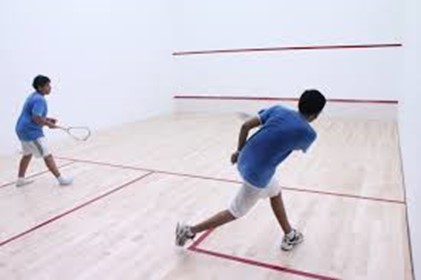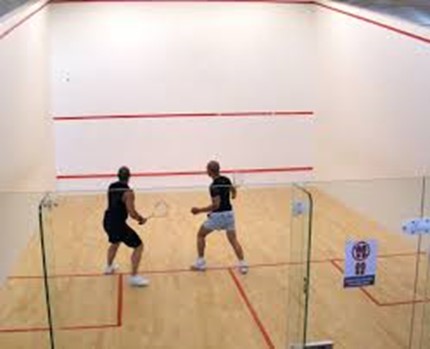Nathan Washam of Brentwood, a seasoned squash player and coach, shares his insights on the art of outmaneuvering opponents on the court. Whether you’re a novice eager to improve your game or an experienced player seeking to refine your skills, the following article offers a roadmap to mastering the strategic nuances of squash. Discover how to elevate your performance and dominate the court with these effective techniques.
Squash is a dynamic and exhilarating sport that demands agility, speed, and strategic thinking. Whether you’re a seasoned player or new to the game, mastering effective strategies can give you a competitive edge and help you outmaneuver your opponent on the court.
Nathan Washam Discusses the Basics of Squash
Before diving into advanced strategies, it’s essential to understand the basics of squash. Squash is played in a four-walled court with a small, hollow rubber ball. Players take turns hitting the ball against the front wall, aiming to outsmart their opponent and score points. The objective is to hit the ball in such a way that it cannot be returned by the opponent before it bounces twice on the floor.
Strategy 1: Control the T
Nathan Washam says that one of the most critical strategies in squash is controlling the T, which refers to the central area of the court where the service boxes intersect. By positioning yourself strategically on the T, you can dominate the court and dictate the pace of the game. Aim to move swiftly and assertively to maintain control of the T, allowing you to anticipate your opponent’s shots and respond effectively.
Strategy 2: Vary Your Shots
To keep your opponent guessing and maintain the element of surprise, it’s essential to vary your shots during a squash match. Mix up your shots by employing different techniques, such as drives, drops, lobs, and boasts. Nathan Washam notes that by varying the trajectory, speed, and spin of your shots, you can force your opponent to react quickly and make errors. Experiment with different shot selections to keep your opponent off balance and maintain your competitive edge.
Strategy 3: Exploit Your Opponent’s Weaknesses
Every squash player has strengths and weaknesses, and identifying your opponent’s vulnerabilities can give you a significant advantage on the court. Pay attention to your opponent’s playing style, shot preferences, and movement patterns to pinpoint areas where they may be susceptible. Nathan Washam of Brentwood says that once you’ve identified their weaknesses, focus on exploiting them by targeting specific areas of the court and forcing them into difficult positions. By capitalizing on your opponent’s weaknesses, you can gain momentum and take control of the match.

Strategy 4: Adapt to Your Opponent’s Game
In squash, adaptability is key to success. As the game progresses, pay close attention to your opponent’s tactics and adjust your strategy accordingly. If your opponent is playing aggressively, focus on defensive shots and counterattacks to neutralize their offense. Conversely, if your opponent is playing defensively, look for opportunities to attack and put pressure on them. By adapting your game plan to match your opponent’s style, you can stay one step ahead and maintain the upper hand on the court.
Strategy 5: Maintain Physical and Mental Fitness
Squash is a physically demanding sport that requires strength, endurance, and mental toughness. Nathan Washam of Brentwood explains that to perform at your best on the court, it’s crucial to maintain your physical fitness through regular training and conditioning exercises. Incorporate strength training, cardio workouts, and flexibility exercises into your fitness routine to improve your overall athleticism and stamina. Additionally, prioritize mental fitness by practicing mindfulness, visualization, and focus techniques to stay calm and composed under pressure.
Strategy 6: Practice Consistently
Like any sport, mastering squash requires dedication, discipline, and consistent practice. Set aside time for regular practice sessions to hone your skills, refine your techniques, and develop your strategic thinking. Focus on specific aspects of your game that need improvement, whether it’s footwork, shot accuracy, or court positioning. By practicing consistently and purposefully, you can refine your game and become a more formidable opponent on the squash court.
Conclusion
Nathan Washam of the Bay Area says that mastering squash is a journey that requires patience, perseverance, and a willingness to learn. By implementing effective strategies such as controlling the T, varying your shots, exploiting your opponent’s weaknesses, adapting to your opponent’s game, maintaining physical and mental fitness, and practicing consistently, you can elevate your squash game and outmaneuver your opponent on the court. With dedication and determination, you can unlock your full potential as a squash player and enjoy success on the court.

